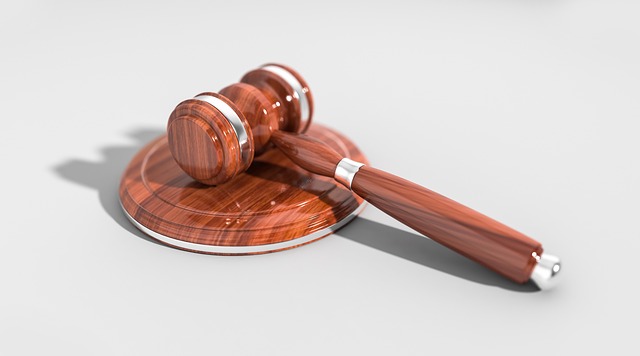Current Death Penalty Legislation Across States
The United States presents a patchwork of death penalty legislation, with some states upholding it as a legal form of punishment while others have formally abolished it. In states that maintain the death penalty, legislation is ever-evolving, with ongoing debates around the methods of execution, the qualifications for a capital offense, and the procedural fairness of trials. The disparate enforcement of the death penalty across jurisdictions is reflective of the nuanced and often contentious legislative process that underpins criminal justice protocols.
These policy variations demonstrate how deeply localized views and politics shape the application and perception of capital punishment. The death row statistics highlight not just the number of individuals awaiting execution but serve as a metric reflecting the broader application of capital laws. The intricate web of state policies, case law, and statutory revisions makes following the trajectory of the death penalty both complex and essential to understanding the current legal landscape.
Examining the state of the death penalty at the state level exposes a legal system that is as varied as it is controversial. This diversity in policy and practice invites questions about its efficacy, moral standing, and place in contemporary society.
Moral and Ethical Considerations
Beyond the legalistic perspectives lays a bedrock of moral and ethical considerations that define much of the tension surrounding the death penalty. The ethical discourse revolves around whether the state holds the legitimate authority to deprive an individual of life, the most fundamental human right. The ethical division on the death penalty is stark, with debates hinging on the validity of retributive justice versus the principle of rehabilitation.
The death penalty’s supporters contend that it deters crime and gives victims and society justice. However, opponents contend that the possibility of causing unnecessary pain, the risk of killing the innocent, and the immoral nature of the death penalty make it an unjust instrument. These philosophical disagreements have significant implications for developing and applying death penalty legislation. Public opinion influences the legislative and judicial process, often acting as a bellwether for changes in capital punishment applications. Morality continually challenges the legal status quo, advocating for a justice system that respects human dignity while upholding the rule of law.
Death Row: The Human Aspect
Amid the numbers, legal jargon, and moral debates are real people whose lives are intricately bound to the institution of the death penalty. Living under the shadow of capital punishment, death row inmates endure a unique and harrowing experience. Prolonged periods awaiting execution in solitary confinement can have devastating psychological impacts on individuals, frequently exacerbated by the inherent uncertainty of their fate and the sluggish pace of justice.
The human stories emerging from death row often bring to light the psychological toll of anticipating death, drawing attention to questions regarding humane treatment and the effectiveness of such an extreme penal measure. These stories also provide a necessary humanization of the death row populace, inviting society to reevaluate its stance on an impersonal institution and consider the nuanced lives it governs.
High-profile exonerations and the subsequent release of individuals who spent years, sometimes decades, wrongfully incarcerated on death row powerfully illustrate the fallibility of the justice system. They also serve as a stirring catalyst for further scrutiny and reform. These individual narratives are powerful tools that can create momentum for change, pushing for revising the current justice mechanisms.
Economic Implications of Capital Punishment

Capital punishment brings forth a moral and legal dilemma and an economic one. The financial costs associated with prosecuting and carrying out death sentences are significantly higher than those for life imprisonment without parole. This cost discrepancy arises from various factors, including lengthy and complex pre-trial processes, the need for specialized legal representation, extensive appeals, and the heightened security and maintenance of death row facilities.
Compounded over time, the financial strain imposed by death penalty cases can influence public policy and feature prominently in the broader debate about its continued use. Evaluating the Costs of the Death Penalty emphasizes how crucial it is to carry out a thorough cost-benefit analysis when considering the state’s and its citizens’ financial obligation.
Racial Disparities in Death Penalty Sentencing
One of the most disturbing aspects of capital punishment is the evidence of racial disparity in death row sentencing. Studies and statistics have consistently indicated that minority groups, specifically African Americans, are disproportionately likely to be sentenced to death, mainly when the victims are white. It raises severe concerns regarding equality before the law and the justice system’s impartiality.
Case studies exploring these inequities have shed light on how systemic biases and historical prejudices can infiltrate legal proceedings, leading to an unequal application of the death penalty. Justice demands fairness and uniformity, and these cases challenge the system to confront and rectify these disparities. They prompt necessary conversations about institutional racism and the steps needed to eradicate it from the judiciary.
Efforts to address these issues have gained traction, with advocacy groups, legislators, and judicial bodies scrutinizing discriminatory practices to ensure the integrity of sentencing. This scrutiny underscores a broader societal commitment to ensuring that the application of justice is blind to race and focused solely on the merits of each case.
International Perspectives on the Death Penalty
The United States’ stance on the death penalty is increasingly incongruent with global attitudes. Over the past few decades, there has been a marked trend towards abolition or moratorium worldwide, with international human rights advocacy organizations championing this cause. These organizations highlight the ethical and human rights issues inherent to capital punishment, condemning it as cruel.
The global shift away from the death penalty provides a stark contrast to the policies still upheld by the US, implicating the country in a broader conversation about international law, human rights, and global standing. As nations form alliances built on shared values and respect for life, the US finds itself reckoning with its position on the world stage and its internal policies regarding the irrevocable punishment of death.
Critical discourse on the US’ implementation of the death penalty also comes into play, with questions about its necessity and morality facing increasing scrutiny both domestically and abroad. This international perspective is influential, potentially guiding the United States toward reevaluating its capital punishment practices.
Featured Photo by Carles Rabada on Unsplash
